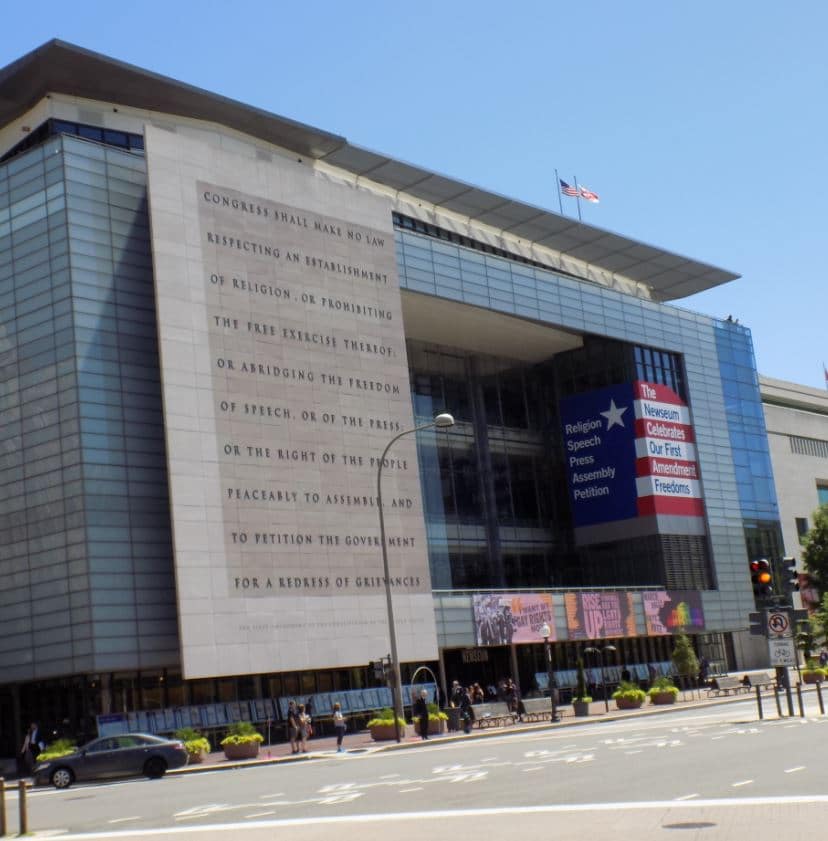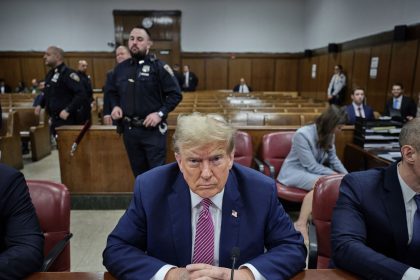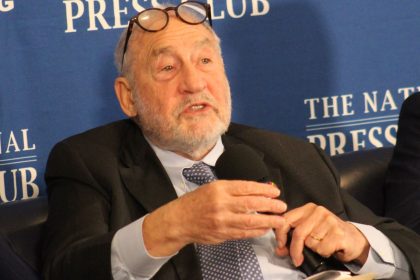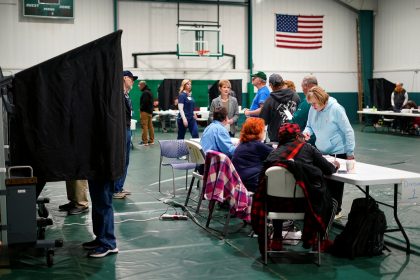News Media Alliance Seeks Anti-Trust Exemption to Battle Tech Giants

WASHINGTON – A House panel began its inquiry into the largely unchecked power of the nation’s largest technology and social media firms Tuesday by focusing on the role the companies have played in reducing the news media to a mere shadow of its former self.
“This will be a top to bottom review of the online marketplace,” Representative David Cicilline, D-R.I., promised at the start of the meeting of the House Subcommittee on Antitrust, Commercial and Administrative Law.
Cicilline, the subcommittee’s chair, explained that the purpose of the bipartisan investigation is to document anticompetitive conduct online, examine whether dominant firms are engaging in anticompetitive conduct, and to assess whether laws currently on the books are adequate to address these problems.
As it stands now, he said, “a combination of predatory acquisitions, a growing innovation kill zone” and other factors have undermined entrepreneurship, and the sheer dominance of the few giant tech firms that remain has left consumers with “worse products, significantly less choice .. while [these companies harvest their data, manipulate their behavior and monetize their retention.”
When it comes to the press, Cicilline said, “a cascade of competition problems on the Internet. … has pushed local journalism to the verge of extinction.”
Describing the news industry as being in a state of “economic free fall” for over a decade, the congressman noted that 2,900 reporters and other news staff had lost their jobs this year alone, and that news ad revenue has dropped from $49 billion in 2006 to $15.6 billion in 2017.
But perhaps even more troubling, he said, is the fact that these massive cuts are happening at traditional news companies and online news sources alike.
Outlets like Buzzfeed and Huffington Post are designed to appeal to readers on social media sites and mobile devices, and yet in recent years they too have been forced to announce significant layoffs.
“This raises a critical question,” Cicilline said. “If online news publishers can’t survive, then who can?”
Bipartisan Bill Aims to Level the Playing Field
Last month the Rhode Island Democrat and Representative Doug Collins, R-Ga., introduced the “Journalism Competition and Preservation Act,” which would provide news publishers with a four-year antitrust exemption to collectively negotiate with Google and Facebook and others, to get better terms for the use of their content.
Senators Amy Klobuchar, D-Minn., and John Kennedy, R-La., have introduced a similar bill in the U.S. Senate.
“At the heart of this bill is helping newspapers survive amid shrinking circulations and massive layoffs,” Kennedy said in a statement announcing the filing of the Senate bill.
“Google and Facebook now control the news kingdom. They’ve pitted themselves against newspapers in a David-and-Goliath battle in which newspapers don’t have a stone to throw much less a slingshot to put it in.”
Kennedy went on to say that when “newsrooms empty” across the country, “the readers are the true losers.”
“Google and Facebook aren’t just companies. They’re countries,” he continued. “We can’t allow them to bully newspapers out of business.”
Klobuchar, who is dividing her days between the Senate and running for president said she believes “it’s more important than ever that we protect the free press and establish an even playing field for negotiation with online platforms.
“Our bipartisan legislation will improve the quality and accessibility of reporting and ensure that
journalists are able to continue their critical work,” she said.
Among those who have been pushing for years for such legislation is the News Media Alliance, a trade group representing 2,000 news organizations, that was formerly known as the Newspaper Association of America.
On Monday the organization released an in-house study conducted with Keystone Strategy, a consulting firm, that looked at how Google uses and benefits from news.
Among the major findings of the study is that news is a key source on which Google has increasingly relied to drive consumer engagement with its products.
According to the study partners, the amount of news that shows up in Google search results ranges from 16 to 40 percent, and the platform received an estimated $4.7 billion in revenue in 2018 from crawling and scraping news publishers’ content – without paying the publishers for that use.
At Tuesday’s hearing, News Media Alliance president David Chavern acknowledged that news organizations and technology giants like Google have come to rely on each other over the years.
Such mutual reliance, “would not be a problem if not for the fact that concentration among platforms means a small cadre of tech giants exercise an extreme level of control over news,” he said.
“At the same time, those same platforms also control the digital advertising technologies that news organizations use to monetize traffic. This has proven to be a dangerous combination,” Chavern said.
He went on to complain that Google and Facebook and others use “secret, unpredictable algorithms to determine how and even whether content is delivered to readers.
“They scrape news organizations’ content and use it to their own ends, without permission or remuneration for the companies that generated the content in the first place,” Chavern continued. “They also suppress news organizations’ brands, control their data, and refuse to recognize and support quality journalism.”
The net result is that a few dominant tech platforms are now acting as regulators of the digital news industry “unconstrained by legislative or democratic oversight.”
“And their primary motivation is not to serve the public interest, but rather to maximize their own advertising revenues,” he said.
Industry Warns of Unintended Consequences
Matthew Schruers, vice president for law and policy for the Computer and Communications Industry Association, spoke on behalf of the tech industry as a whole, warning lawmakers that “antitrust exemptions generally have had limited success in achieving their stated goals, and are frequently criticized. These exemptions or immunities typically invite competitors to cartelize, engage in price fixing, or collusive bargaining. These exemptions distort the free market.”
“The Journalism Competition and Preservation Act of 2019, H.R. 2054, proposes such an exemption to the U.S. antitrust laws. It would allow competing news publishers to collude in negotiations with digital services,” he said.
Schruers went on to note that the internet is not the first new communications medium to challenge print news publishers.
“Arguably, it is the third,” he said, “following broadcast radio and then broadcast television, which could provide news instantaneously and at zero marginal cost to an entire locality.
“The competitive threat of broadcast news prompted previous proposals to exempt the newspaper industry from antitrust norms,” Schruers said. “This was eventually implemented with the Newspaper Preservation Act of 1970, which exempted from antitrust scrutiny certain agreements between otherwise competing newspapers in the same geographic vicinity.
He reminded the panel that the goal of the Newspaper Preservation Act was to keep competing newspapers publishing in areas where readership was declining by allowing them to reduce costs by eliminating overlapping costs, including non-editorial personnel and facilities.
“Unfortunately, the Act failed to achieve the stated goal of Congress to maintain independent competing voices. In fact, historians and journalists have argued the NPA fostered monopolies and chains instead of producing independent voices.
“Given the cautionary history of the previous exemption for local newspapers, another would be ill-advised,” he said.
Sally Hubbard, director of enforcement strategy with the Open Markets Institute, a think tank that uses journalism to promote greater awareness of the political and economic dangers of monopolization, was not convinced.
Hubbard argued that digital platform monopolies are a threat to American democracy because they spread disinformation and propaganda, starve journalism and exercise control over speech.
In her view, the Act proposed by Cicilline and the other lawmakers “would restore the power imbalance in the market and reduce intermediaries to their rightful place of matching ad buyers and publishers.”
“At the Open Markets Institute, we believe the American people have both a right and a duty to use government to ensure the independence and financial viability of both national and locally based news organizations,” she said.
“As a country, we have been here before. We have stood up to powerful tech monopolists. Each time, we were better for it. We unleashed new waves of innovation. We dispersed opportunity. We restored our markets and removed gatekeepers,” Hubbard said. “If we don’t act now to change the structure of our markets, titans will continue to control speech, journalism will continue to suffer, and so will our democracy.”
The Subcommittee on Antitrust, Commercial and Administrative Law plans to hold several more meetings on the market power of online platforms in the coming month. It is still considering the fate of the Journalism Competition and Preservation Act. The Senate version of the bill has been referred to the Senate Judiciary Committee.
























